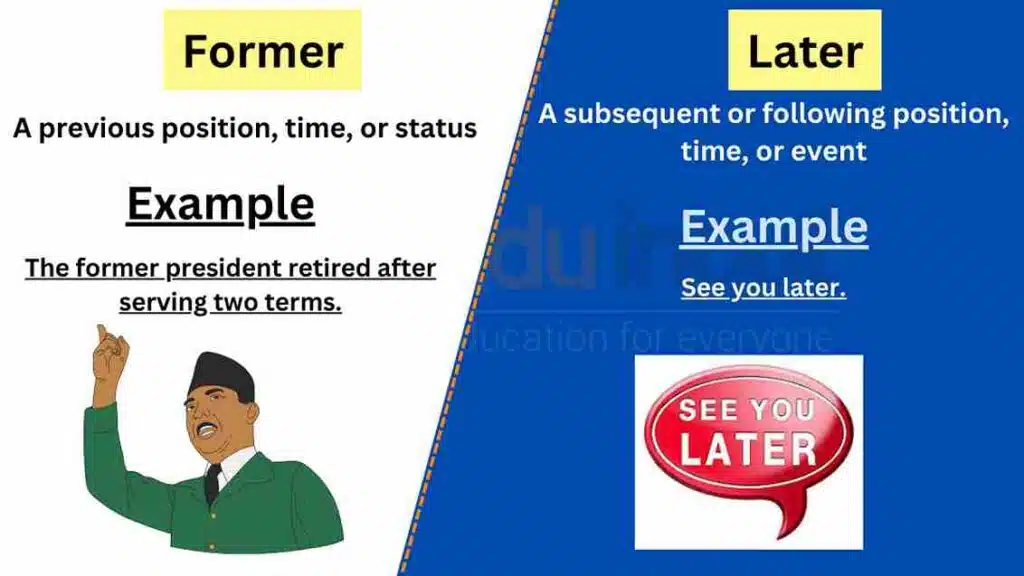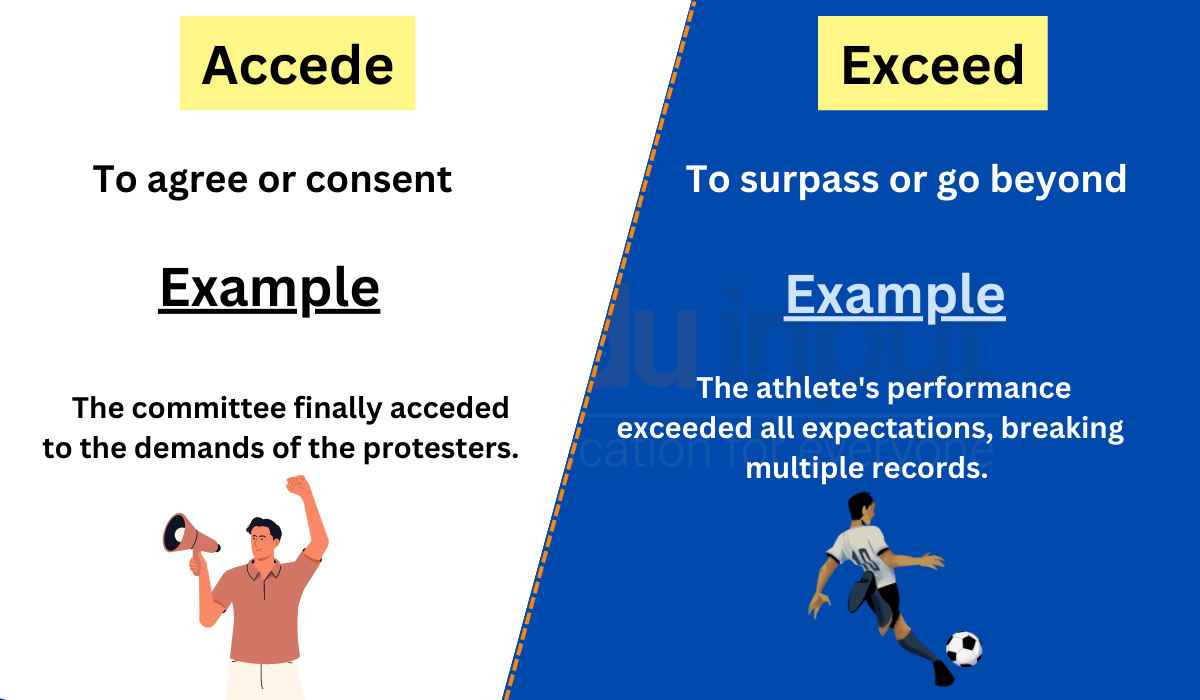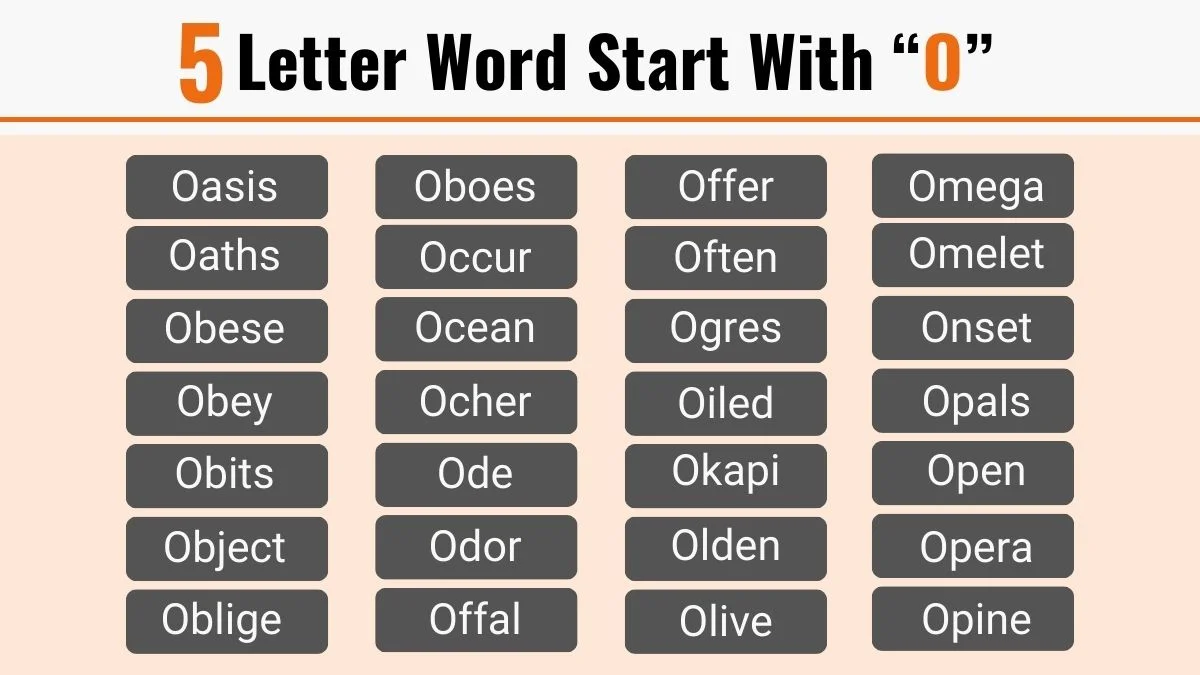Former vs Later –Difference Between And Examples
The words “former” and “later” refer to the order or sequence of events or positions. While they may seem similar, understanding their distinctions is crucial to conveying accurate information. In this article, we will explore the differences between “former” and “later” and provide examples to clarify their usage. This knowledge will enable us to express chronology and sequence effectively in various contexts.

Meanings and Examples
Former Meaning
The meaning of “Former” is a previous position, time, or status.
Former Examples
- “John is a former employee of the company.”
- “The former president retired after serving two terms.”
- “In her former life, she worked as a teacher.”
Later Meaning
The meaning of “Later” indicates a subsequent or following position, time, or event.
Later Examples
- “Let’s discuss that issue later in the meeting.”
- “He completed his studies and pursued a career in medicine later in life.”
- “I’ll respond to your email later today.”
Difference Between Former and Later
| Former | Later | |
| Meaning | Previous position, time, or status | Subsequent position, time, or event |
| Example | “John is a former employee of the company.” | “Let’s discuss that issue later in the meeting.” |
| Usage | Referring to the past | Indicating subsequent events or positions |
| Context | Employment history, past experiences | Future plans, upcoming events |
Usage in a Paragraph
The former CEO of the company, Mr. Johnson, led the organization through a period of significant growth and success. After his retirement, the company appointed a new CEO to continue the company’s progress. In the context of a meeting, the team discussed the project’s initial phase first and left the more complex aspects for later in the discussion. This allowed them to focus on addressing immediate concerns before delving into more detailed plans. Similarly, in personal life, one may decide to pursue higher education or change careers later in life, after gaining more experience or reaching a certain level of stability. Understanding the distinction between “former” and “later” is essential for accurately expressing past events or positions and indicating subsequent actions or sequences.
While “former” and “later” may seem similar, they serve different purposes in describing the order or sequence of events or positions. “Former” refers to a previous position, time, or status, commonly used in employment history or personal experiences. “Later” denotes a subsequent or following position, time, or event, often used to indicate future plans or upcoming events. By comprehending the differences between these terms, we can express chronology and sequence accurately, whether discussing past experiences or outlining future actions. Clear usage of “former” and “later” enhances our ability to convey meaning and engage in effective communication in various contexts.







Leave a Reply